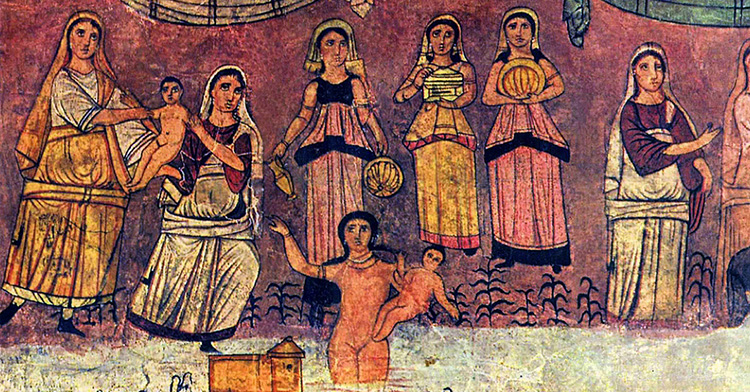At the start of a new academic year, I participated in several introductory activities, sharing my name, where I’m from, my ministry vocation. In one introduction, I had to share my motivation for ministry.
My initial answer reminded me of childhood Sunday school class, where we were asked why we were called to be a light in the world.
“Jesus!” we would reply. Jesus was always the answer.
Digging deeper, however, I recognized that I carry a theological vision focused on communal wholeness. I am motivated by a willingness to promote ministry practices that inspire collective participation in communal transformation. The work of contextual exegesis — understanding the local community’s needs and capacity, as well as the network of resources available to determine a possible solution to a problem — that is what excites me. I’m deeply interested in unleashing our capacities for creative thinking and in cultivating a perspective that positions us as catalysts for continuity and transformation. Doing so benefits our institutions and the world.
Jesus is still my answer, but it is because I believe the Holy Spirit is active in our lives and our world, addressing how we cooperate amid real suffering and evil.
This question of motivation is familiar. It has been asked of religious people since the early formation of their faith communities, but often under different circumstances.
The fourth chapter of Acts records how, at the birthing of this new faith community, the religious leaders were worried that Peter and John’s call to repentance and belief in the resurrection would produce a wildfire of conversion, challenging their authority and power.
Under duress, the two were questioned by these religious leaders: “By what power are you doing this?” What is your motivation?
Jesus had warned the disciples of such questions in Luke 12:11-12: “When you are brought before synagogues, rulers and authorities, do not worry about how you will defend yourselves or what you will say, for the Holy Spirit will teach you at that time what you should say” (NIV).
The Holy Spirit did not just supply an answer “at that time” — it has always been the answer. The Holy Spirit uses us as instruments to show God’s tenderness, mercy and compassion. I believe this is an expression of Christian hospitality.
In “I Was a Stranger,” theologian Arthur Sutherland shares that the Holy Spirit gives us an understanding of hospitality as being deeply connected to the identity of Christ:
In the light of Jesus’ life, death, resurrection, and return, Christian hospitality is the intentional, responsible, and caring act of welcoming or visiting, in either public or private places, those who are strangers, enemies, or distressed, without regard for reciprocation.
Sutherland argues that the church should be a community of people in the world, addressing the needs of those who journey with them.
Inspired by Jesus, our faithful witness to the Scriptures requires attentiveness to embodied hospitality driven by the winds of the Holy Spirit. This is traditioned innovation at work — a biblical way of leading that integrates Christ’s transformative work into our ongoing identity as the people of God rooted in the biblical story.
The Holy Spirit is both a provider and a source connector who helps us make the kingdom of God a reality. Imagine if our institutions called on the Holy Spirit to embody within us a power to eradicate systems that perpetuate the oppression of the vulnerable in our society.
I believe the Holy Spirit gives us the power to eradicate a system built upon boosting profits that does not allow insurance companies to cover people’s pursuit of healing and wholeness — look at the woman with the blood issue.
The Holy Spirit gives us the power to create wealth-building projects that will eliminate debt bondage in our communities and liberate people from predatory interest rates that perpetuate the cycle of poverty — look at the unforgiving debtor.
The Holy Spirit gives us the power to overturn assistance programs that should be designed as incubators for independence but instead can undermine empowerment and promote shame — ask the beggar at the gate called Beautiful.
Our communities are called to be signs, foretastes and instruments of the reign of God, where sicknesses can be healed, bigotry can be eliminated, and poverty is no longer a death sentence but an assurance for collective provision. This is a new way of life!
In these times where there are social, political and economic ideological messages promoting inequality, racism and greed, we who profess Christ should never be ashamed of our motivation to seek the common good.
We have the power of the Holy Spirit. We must be resolute and resilient in spreading the gospel and living it out to the far ends of the earth. The Holy Spirit gives us the boldness to proclaim the overturning of oppressive systems and live in a way that actively tears them down.
C. Kavin Rowes argues, “Christians are those whose common life positions them for visibility in the world as a witness to Jesus Christ.”
As witnesses, we testify that thriving must include provision for and inclusion of the disempowered and oppressed. Such inclusion and provision are the core convictions of our activity in the world.
By what power do we register people to vote? By what power do we fight for funding for our education system? By what power do we seek the cancellation of medical debt?
By what power do we strategize to build affordable housing? By what power do we liberate our children from the school-to-prison pipeline?
Through the Holy Spirit, we have the provision to accomplish this mission — even amid the constraints. Constraints are not restrictors but rather stimulators of increased creativity and positive change. This is the power of the Holy Spirit at work.
Thinking back to my Sunday school class, I find myself singing, “There is power, power, wonder-working power.”
Yes, this is our motivation.
Imagine if our institutions called on the Holy Spirit to embody within us a power to eradicate systems that perpetuate the oppression of the vulnerable in our society.






















